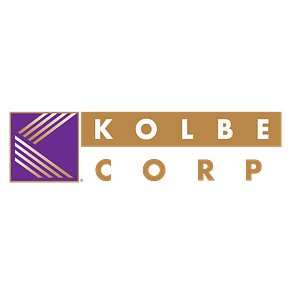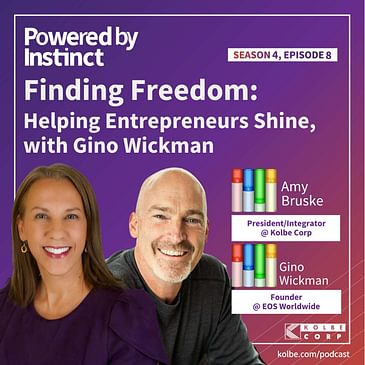Gino Wickman has done as much for entrepreneurs as anyone walking this planet. A celebrated leader, founder, and author, he is the mastermind behind incredible systems that countless businesses around the globe use every day. Join Gino and Kolbe Corp President Amy Bruske as they discuss how critical understanding your MO can be to long-term success, and how Gino’s MO and his unique ability to see patterns and trends shaped his path to creating EOS® and including Kolbe in the EOS Toolbox™. In addition, they discuss Gino’s journey as a driven person, the figurative mountain he felt compelled to climb as a driven entrepreneur, and the inner peace and wisdom he found at the top of that mountain. In this episode, Gino connects how better understanding himself and his strengths led to discoveries he could use to help other driven people find their own peace, and why he was inspired to write Shine, his new book that breaks down the 10 Disciplines entrepreneurs can use to maximize their energy, impact, and inner peace.
Host: Amy Bruske (3583)
Guest-at-a-Glance
💡 Name: Gino Wickman (4683)
💡What he does: In addition to founding EOS®, Gino is a celebrated entrepreneur and author who has dedicated himself to helping others maximize their freedom. His celebrated books include Traction and Shine.
💡Company: The 10 Disciplines
💡 Where to find him: LinkedIn
💡 More helpful links:
- Download a free chapter of Shine
- Visit the10disciplines.com to learn more
- Take the True Self Assessment
Takeaways
- Understanding and appreciating your instinctive strengths can set you on the path to long-term success.
- Being driven is a blessing and a curse, with the potential for great achievements but also the tendency to cause damage to oneself and others.
- All decisions are made out of love or fear, and understanding this dynamic can lead to better decision-making and a deeper sense of peace.
- It is possible to be driven and find peace by shedding the ego and letting one's true self shine.
- Practical tools and exercises can help individuals on their journey to inner peace. Shedding layers and embracing your true self leads to inner peace and increased drive.
Key Quotes from Gino
- "You can be driven and find peace."
- "There is no mountain to climb; it's all just a journey."
- “Being driven is both a blessing and a curse.”
- "All decisions are made out of love or fear."
- “It is possible to be driven and find peace.”
- “I am a Kolbe fanatic. I took it and I just fell in love with it because it defined me better than anything I'd found. I mean it was just so powerful and so free.”
- “Kolbe is determining true self in work, like the soul of the human being.”
- “I made every one of my clients take Kolbes, and it is now one of the 20 tools in the EOS toolbox. And so, we've now had tens of thousands of people take Kolbe because of its power in there.”
Chapters
00:00 The Journey of the Entrepreneur
11:31 Being Driven: Blessing and Curse
25:25 Embracing Your True Self
34:14 The 10 Disciplines to Maximize Energy, Impact, and Inner Peace
38:58 Practicing Gratitude: Cultivating Humility and Shifting Focus
48:39 The Value of Struggle: Personal Growth and Resilience
If you would like to be a guest on Powered by Instinct or get in touch with any of our Kolbe Experts, send us a quick email: info@kolbe.com




